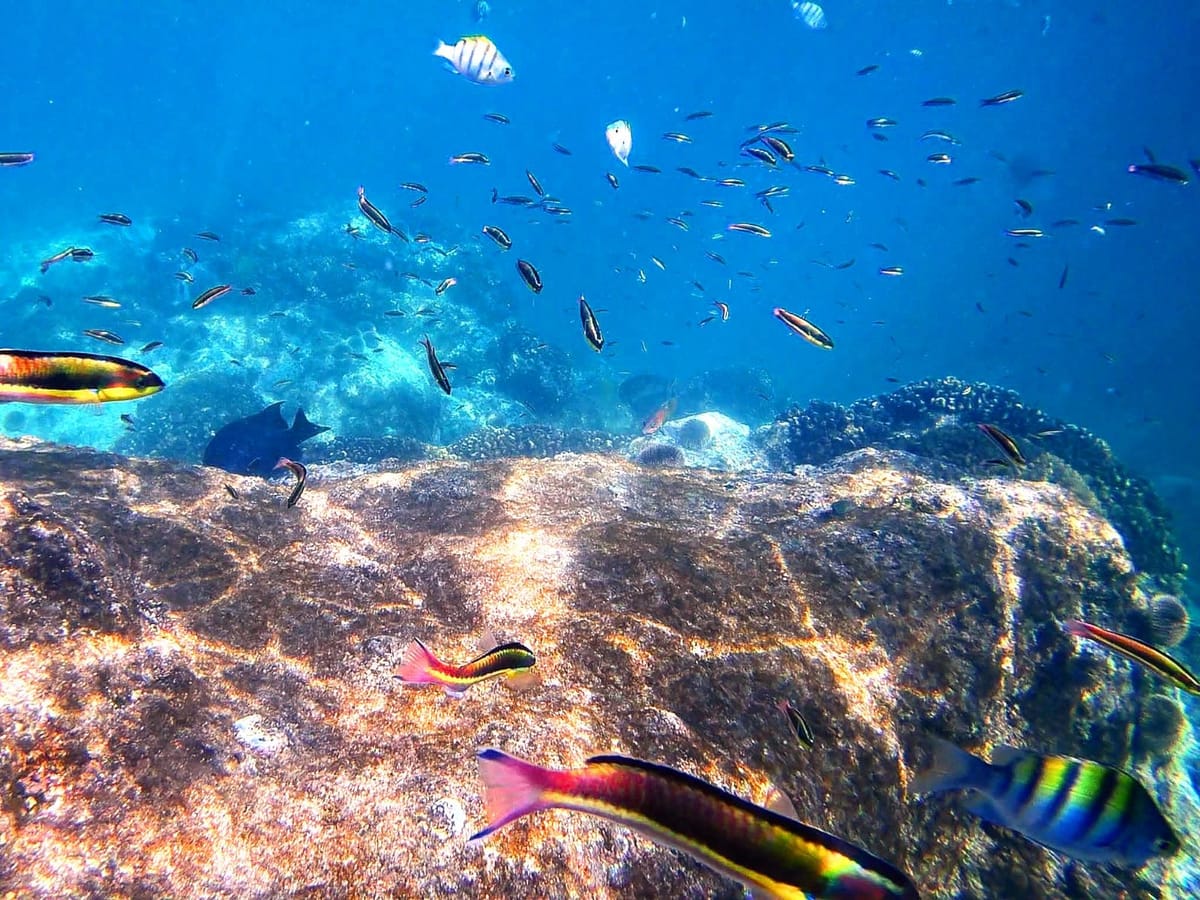Coral Reefs: Ecological Lifelines at The Edge of Extinction

By Aeris Clinton
1 December 2024
Coral reefs are commonly referred to as ‘’the rainforests of the sea’’; an extremely well-deserved and accurate title. These vital and vibrant ecosystems serve various functions that are not only essential to marine life, but to people as well.
Coral reefs support around 25% of marine species crucial to global food systems, and millions of people rely on these species as a primary source of protein. They also act as natural barriers, shielding coastlines from storms, erosion, and flooding. Reefs are also a major income source through tourism, fishing, and sustainable harvesting.
Interestingly, coral reefs also have medicinal potential because they are a source of bioactive compounds that could potentially lead to discovering new medicines! In quick summary, they provide shelter, food, breeding grounds for various marine species, income, and medicine, and regulate climate change by storing carbon.
With all these functions, you would assume that humanity as a species would be actively and consciously working to safeguard these vital ecosystems. Unfortunately, you would be wrong. Coral reefs are facing imminent threats that demand urgent attention and immediate action. With rising ocean temperatures, excessive pollution, overfishing, and coastal development, we are rapidly pushing our reefs to extinction.
Have you ever heard of coral bleaching? One of the most bizarre effects of climate change is coral bleaching. This is a phenomenon where stressed corals expel algae that give them both their color and nutrients. Without this algae, corals rapidly weaken and become significantly vulnerable to disease, often leading to death.
If we lose our reefs, we will experience devastating consequences, both for marine life and people alike. With our carelessness, we are risking the collapse of marine biodiversity and the livelihoods of millions of people globally.
So is there hope? With global conservation efforts such as marine protected areas and sustainable fishing practices, we can collectively strive towards saving our reefs. By reducing carbon emissions, cutting down on pollution, and supporting sustainable fishing, we have hope.
However, this can't be done without collective effort from people around the world. You can help to save our reefs in your daily lives by minimizing your carbon footprint and plastic use, choosing sustainable seafood, using reef-safe sunblock, and spreading awareness.
It’s time that we open our eyes to the depletion of our reefs, and take action. If we don’t, we will surely feel the catastrophic consequences of our negligence. It’s time that we speak up for what can’t speak for itself, and advocate for these fundamental, irreplaceable life-supporting ecosystems.



